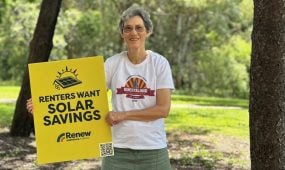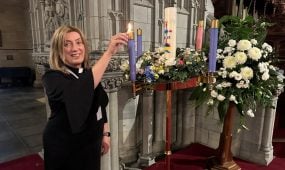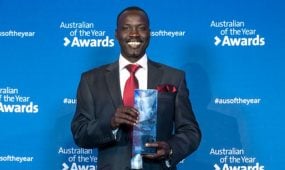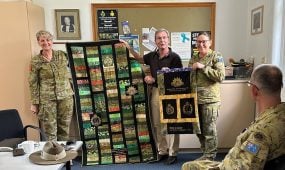Q&A with Mununjali man, ASC Director of Indigenous Education and father of nine, Uncle Paul Paulson
Spotlight Q&A
Meet Uncle Paul Paulson from the Anglican Schools Commission (ASC) and find out about his new role, current projects, thoughts on “Being Together: Embracing Joy”, his karaoke go-to song, and what he would write on a billboard and why
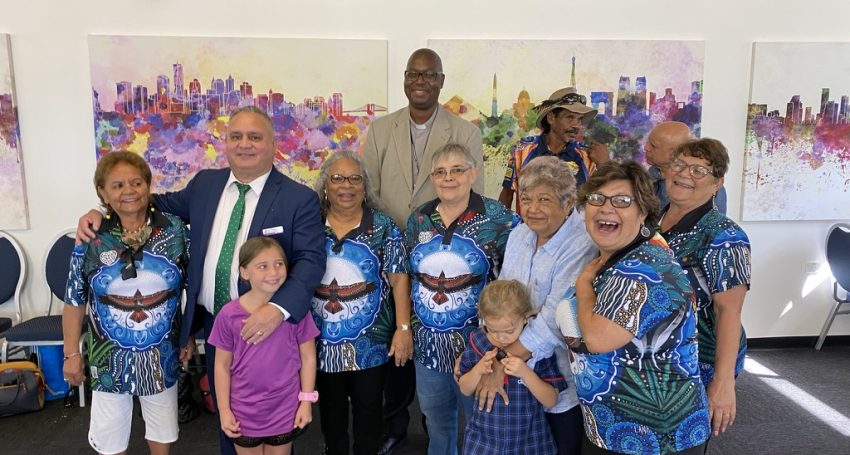
Please note: First Nations peoples should be aware that this content may contain images or names of deceased persons.
Where do you currently live and where do you worship?
I worship in an Anglican church on the north side of Brisbane. I am married to my high school sweetheart, Linda, and we have nine children and five grandchildren.
How long have you been involved in the Anglican Church and in what roles?
This is the second time I have worked for the Anglican Church. The first time was as an Education Officer for the Anglican Schools Commission in 1999. Previously I was a member of the Anglican Men’s Society. Work, family and PhD studies keep me busy.
What is your current ACSQ role and how does this role contribute to the Church’s mission?
My current role is Director of Indigenous Education at the Anglican Schools Commission. My role covers Anglican schools from the Gold Coast to Bundaberg to the Darling Downs.
I assisted with the writing of the Anglican Schools Commission Reconciliation Action Plan actions last year.
In my role I am focusing on closing the gap of educational access, opportunities and outcomes for First Nations children. I really love my job.
What are the best aspects of working at the Anglican Schools Commission?
The people – we have amazing people in our school system. Over the last month I have visited over a dozen schools. There is also an overwhelming willingness of our schools to embrace all aspects of Indigenous education.
What projects and activities are you currently working on?
I am currently working on a cultural immersion program. The Anglican Schools Commission will have a portal on the website. The portal will offer a cultural competency course for staff, so they have the confidence and knowledge to work with students and their families as they implement culturally appropriate teaching strategies.
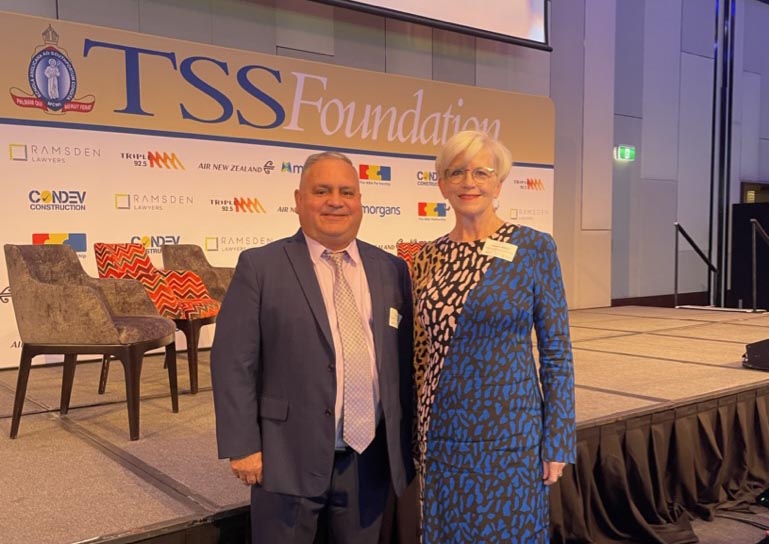
Paul Paulson and ASC Executive Director Sherril Butterworth at The Southport School Foundation Breakfast in 2021 at the Royal Pines Resort
What are your plans and goals for the next 12 months?
In the next six months, we will have our Indigenous Education Research Institute up and running. It will be a virtual institute, at least initially. The aim of the institute is to implement best practice across our schools in the education of First Nations students.
What person of faith inspires you the most and why?
Rubin “Hurricane” Carter. He was a boxer from the United States who was wrongfully convicted of murder. More than 20 years later he was acquitted and released. He never gave up on faith – it was one of his most enduring traits. He travelled the world speaking about justice.
The 30th anniversary of the landmark Mabo High Court decision is approaching – what does Native Title mean to you and your family?
Native Title is the pivotal decision that changed the country forever and extinguished the 200 year lie of land not being occupied by anyone. To me it is very important, it provides opportunities for Mob to undertake a raft of economic and social programs on their Country without hindrance.
How do you plan to celebrate National Reconciliation Week this year?
The Anglican Schools Commission is hosting the Traditional Aboriginal Games festival at two of its schools during National Reconciliation Week. The Junior Aboriginal Games for Years 5 and 6 will be held at St John’s Anglican College from 9 am to 2 pm, and all Anglican schools from the SEQ will be invited. The Senior Aboriginal Games Festival will be held at Coomera Anglican College on 1 June. This will be contested between schools from the Anglican Schools Commission for Years 7 and 8.
2022’s Diocesan theme is ‘Being Together: Embracing Joy’. What are some practical ways that we can celebrate the way differences help to make us whole and the importance of diversity in our unity?
All of our schools are on different Aboriginal Countries. We are connecting our schools to the Traditional Custodians of the lands on which they live and teach. This will help our schools connect spiritually with Country.
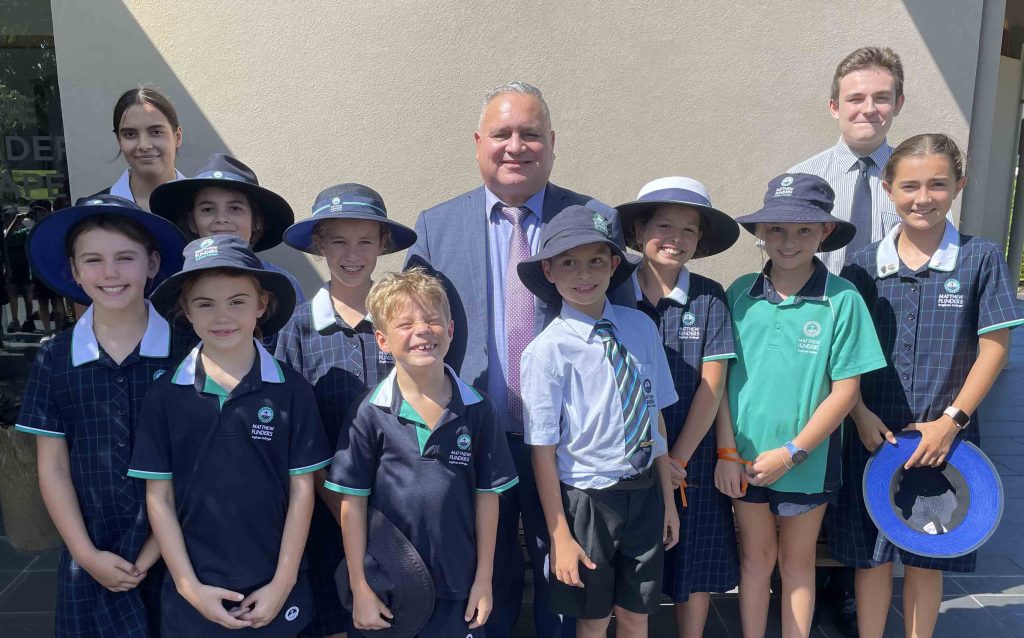
“This is a pic of a recent visit to Matthew Flinders Anglican College. It was my first meeting with Indigenous primary school students and we’d just had a story telling session” (Paul Paulson)
What are the primary strengths of the Anglican Church and what is the best way to make the most of these for the benefit of our communities?
The thing I love most about the Church is our attitude towards inclusion. We include everyone, as did Christ.
What is the kindest gesture you have ever received or witnessed?
The new Aboriginal program at Churchie is run by a non-Indigenous Year 10 student, Henry, who put it to the school that more could be done to support and empower First Nations peoples. The teachers are all behind him. Henry really impressed me.
What is the best piece of advice you have ever received and who gave you this advice?
“Don’t try and be everything to everyone.” My old mentor and uncle told me this in the 1990s.
What do you do in your free time to recharge and relax?
I swim, garden, walk the dogs on the beach and visit family.
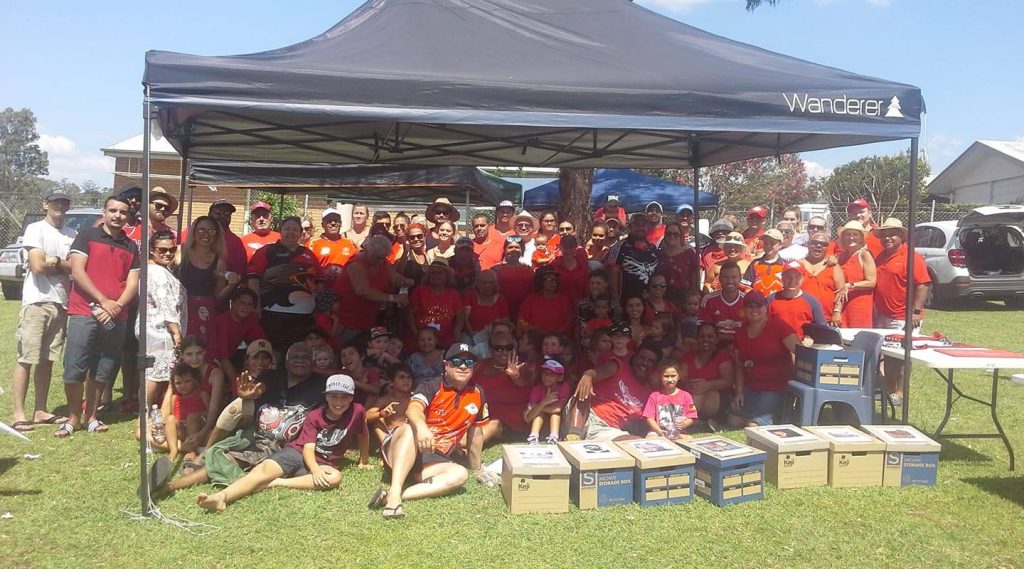
Paul Paulson and other descendants of Phyllis Paulson’s family at the Granny Polo Bi-Annual Reunion: “6 clans gather for this day”
If you found yourself on a deserted island, what three things would you choose to have with you?
A monster library, my wife, my health.
If you could only eat one food for the rest of your life, what would it be?
Fruit, especially pineapple, watermelon and bush mandarin.
If you could have a billboard with any text on it, what would it say and why?
“Be kind.” I ache for humanity to be compassionate and kind.
What day would you like to re-live and why?
Twenty years ago, we launched the adopt-an-elder program in our Anglican schools. Elders from Countries across our Diocese came. Having them all there in one place was powerful. Many of the Elders became like rockstars in the schools. Kids love gathering around First Nation Elders and hearing their stories.
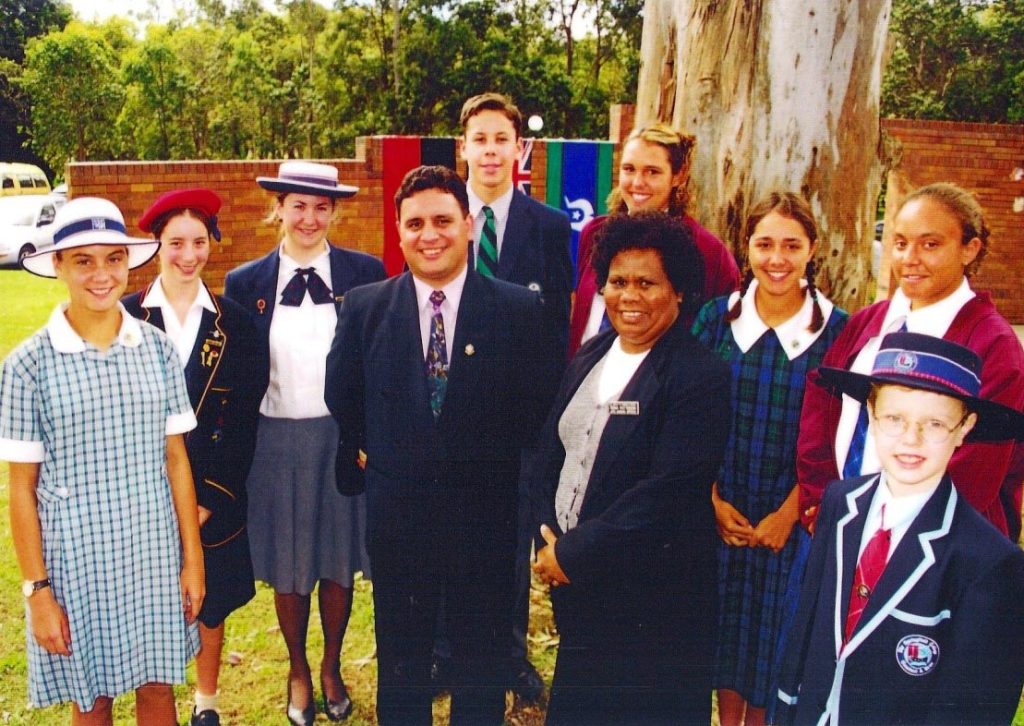
Paul Paulson at the Adopt an Elder launch at Cannon Hill Anglican College in 1999
What book have you given away most as a gift and why?
A book I wrote for teachers on the Stolen Generations. It’s titled Binanma, which means “to listen and to hear” in Yugambeh language. My grandmother was stolen.
Where do you do your best thinking?
When I am at home alone swimming.
What’s your best childhood memory?
Growing up with all my cousins playing in the mulberry tree in my nanna’s Beaudesert backyard on Petersen St. I have a huge extended Mununjali family – we are still close today.
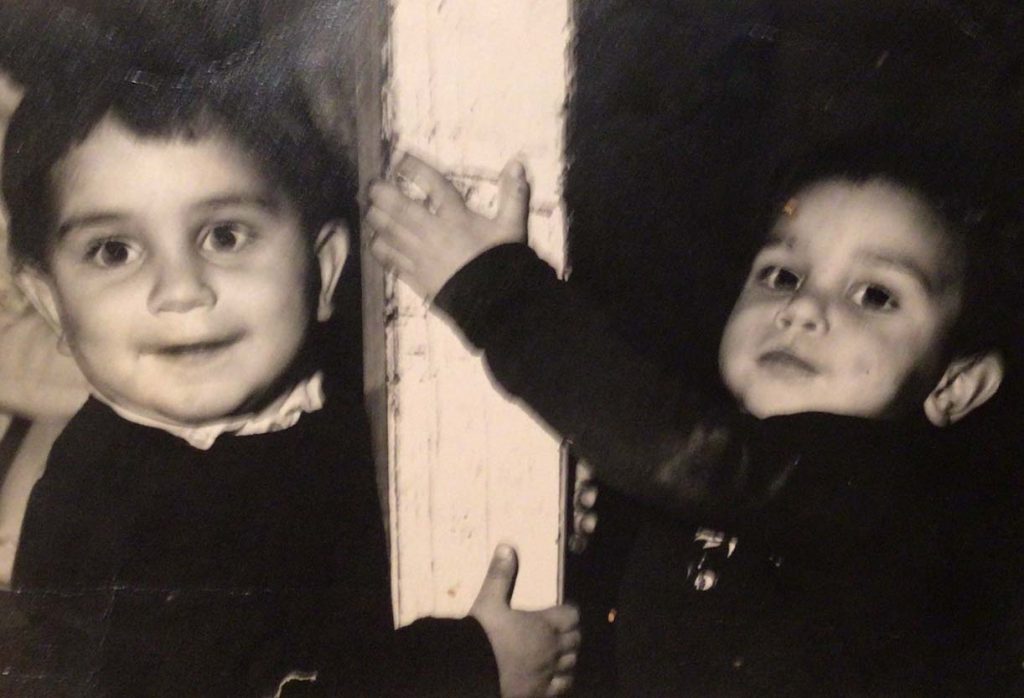
“My brother Robert and I in Beaudesert at the Rugby League Clubhouse in 1972 (I am the boy on the left)”
If you are having a bad day, what do you do to cheer yourself up?
Listen to my playlist. I have several thousand songs on it.
What is the funniest thing that has happened to you recently?
While I was visiting St John’s College primary school students recently, one of the Year 3 students, upon seeing me in a suit and tie, asked if I was the mayor.
What is your karaoke go-to song?
‘Creep’ by Radio Head.
Editor’s note: National Reconciliation Week (NRW) is held annually between 27 May and 3 June. This year’s theme is “Be Brave. Make Change.” Visit the Reconciliation Australia website for posters and resources and to register your NRW events. Find out about Diocesan NRW events by visiting the anglican focus ‘Events’ page.

